- News
- Reviews
- Bikes
- Accessories
- Accessories - misc
- Computer mounts
- Bags
- Bar ends
- Bike bags & cases
- Bottle cages
- Bottles
- Cameras
- Car racks
- Child seats
- Computers
- Glasses
- GPS units
- Helmets
- Lights - front
- Lights - rear
- Lights - sets
- Locks
- Mirrors
- Mudguards
- Racks
- Pumps & CO2 inflators
- Puncture kits
- Reflectives
- Smart watches
- Stands and racks
- Trailers
- Clothing
- Components
- Bar tape & grips
- Bottom brackets
- Brake & gear cables
- Brake & STI levers
- Brake pads & spares
- Brakes
- Cassettes & freewheels
- Chains
- Chainsets & chainrings
- Derailleurs - front
- Derailleurs - rear
- Forks
- Gear levers & shifters
- Groupsets
- Handlebars & extensions
- Headsets
- Hubs
- Inner tubes
- Pedals
- Quick releases & skewers
- Saddles
- Seatposts
- Stems
- Wheels
- Tyres
- Health, fitness and nutrition
- Tools and workshop
- Miscellaneous
- Tubeless valves
- Buyers Guides
- Features
- Forum
- Recommends
- Podcast
review
£2,799.99
VERDICT:
Great value aero bike that's fast and easy to ride. Recommended
Weight:
7,970g
Contact:
At road.cc every product is thoroughly tested for as long as it takes to get a proper insight into how well it works. Our reviewers are experienced cyclists that we trust to be objective. While we strive to ensure that opinions expressed are backed up by facts, reviews are by their nature an informed opinion, not a definitive verdict. We don't intentionally try to break anything (except locks) but we do try to look for weak points in any design. The overall score is not just an average of the other scores: it reflects both a product's function and value – with value determined by how a product compares with items of similar spec, quality, and price.
What the road.cc scores meanGood scores are more common than bad, because fortunately good products are more common than bad.
- Exceptional
- Excellent
- Very Good
- Good
- Quite good
- Average
- Not so good
- Poor
- Bad
- Appalling
Boardman's Elite Air 9.2 is just the ticket if you're looking for a fast bike with a good spec but you haven't got very silly money to spend. It's a good package and the performance is impressive straight out of the box. There are a few minor niggles, but nothing that would make me hesitate to recommend it.
If you're buying an aero bike, chances are you're doing so because you want to go faster; that, or you just like the look of deep-section tubes, or relish the challenge of adjusting hidden brakes. Anyway, likely the former.
> Find your nearest dealer here
So: do you go faster? My work on this has been anecdotal, rather than especially scientific. But the anecdotal evidence suggests a yes: you go faster on this than on standard road bike. Here are three examples of things that have happened.
Firstly, I was checking the sprint response and high-speed cornering on a descent I like to use for that, which I've ridden many times before. So, like many times before, I put the hammer down out of the hairpin and sprinted to the first corner before rolling down the rest in a tuck and taking the corners full speed. And when I got home, suddenly I had the KOM on Strava.
Secondly, I took the Air 9.2 up to my local crit race. I'm a third cat, and this winter we have to race with the second cats every week, so I generally get binned out with around 10 minutes gone and have to do the rest of the race on my own, or with the other poor souls who got dropped. But this time I won! Only kidding, I still got dropped. But I stayed in the race for twice as long and did seven of my ten best lap times along the way, including a new personal best.
Thirdly, I set off to Bristol and rolled down Pennyquick, which is a long, fast descent with a 16% bottom section. Normally you'll roll up to 70-75kph at the bottom before you have to give it the beans to get up the other side. On the Boardman, I hit 86kph without doing anything different.
Those are three stand-out nuggets from the testing. There are others: a fastest average speed on a common loop that I do, and plenty of personal bests along flat sections. Basically, it's faster. I don't know by how much, exactly, and the advantage you get will depend on all sorts of things.
Recently we ran a blog by a teammate of mine who also races in the 3s who'd spent some time comparing the performance of his new Look 795 Aerolight frame with his old Cannondale and BMC, and certainly the numbers suggest it's faster. I don't know if the Boardman is as quick as the Look. I do know it's £2,799 in a Shimano Dura-Ace build, though, when the Look's frame is £4,499 on its own.
The ride: Neutral and predictable with a firm feel
Some aero bikes can be a handful, but thankfully the Air 9.2 is a very neutral ride most of the time. Considering the amount of side profile, it's really not that much of a handful in the wind. Okay, I had a couple of interesting moments getting hit by a 30mph sidewind on one long ride, and the next day I certainly felt it in my upper body where I'd been fighting the bike a bit, but it's generally pretty predictable.
I found that the wheels, even though they're not an especially deep section, contributed a lot to the bike's ability to catch the wind. Things improved when I swapped out the Boardman Air Elite Five wheels for our test set of Swiss Side Hadrons, even though those wheels are a fair bit deeper.
If it's not especially windy then the Boardman rides much like any other quick bike. With a stack-to-reach ratio of 1.44 in the XL I tested (the position gets marginally less aggressive the bigger you go), the Air platform is similar to other aero bikes: not quite as aggressive as a Canyon Aeroad (we have an overview of the 2016 range here), about the same as a Giant Propel (check out the 2016 range here). Ours came with a decent stack of spacers and I opted for a mid-position in the end, so making it lower at the front wouldn't have suited me; if you like your bikes fully slammed then there are more bum-up-head-down frames than this.
Position-wise the Air 9.2 has another trick up its sleeve. The aero seatpost has plenty of depth and Boardman has made good use of it by tapping a series of four holes into the alloy insert at the top. The saddle clamp screws down into one of them, allowing you to quite simply alter the saddle position and the effective seat tube angle. Boardman sells a lot of these bikes for triathlon; the top-of the range Air 9.8 is the bike the Brownlee brothers habitually use to win stuff. The seatpost allows a steeper effective seat tube angle which is better for tri, and also for time trialling. The Air 9.2 would certainly be an effective TT bike with the addition of a set of clip-on aero bars.
Boardman uses an oversized 1 1/2in crown race bearing, and the deep-section fork contains plenty of carbon; those things add up to a front end that's firm and tracks very well.
Braking response up front is excellent too: Boardman uses an integrated TRP mini-V brake within the legs of the fork to improve airflow. It's a bit of a faff to set up because it's well hidden, and adjusting the centreing requires some handy work with a spanner and an Allen key (Boardman now supplies a special tool to make it easier) but once they're set up there's plenty of power on offer and the feel and modulation is good.
The rear brake isn't so good, but I've yet to try an under-the-bottom-bracket setup that I've been genuinely impressed with. The cable for the rear brake enters behind the head tube (as all the cables do) and heads down inside the down tube to the calliper. It isn't an especially tortuous run but the brake still feels a bit spongy and it's hard to grab the right amount of stopping without occasionally locking the back wheel. Because the front brake is so much better you tend to rely on that more.
The front is firm, and the rear is firm: this isn't designed as an all-day-comfort endurance machine. That's not to say it's horribly uncomfortable though. I've done 100km+ rides on the Air 9.2 with no problems. It comes shod with 25mm Vittoria Rubino Pro tyres which add a bit of cushioning at either end. Vibration through the front, with the stiff fork and the alloy bar, is more of an issue than at the rear, but neither is especially bad for the type of bike this is.
Response under power is good. The core of the bike is very stiff and there are no issues with flex making the bike feel vague when you stamp on the pedals. I managed to get the wheels to rub on both brakes under heavy loads but I suspect that's more to do with wheel flex than frame flex, as it was less of an issue after a wheel swap.
It didn't quite go away at the rear, and I think that's a consequence of the position of the rear brake. It's always possible to make the rear wheel move in the rear triangle; put your pedal at the bottom of the stroke and just lean on the bike and it'll shift about, because there's always some flex in the frame and the wheel. But the nature of the forces that you're applying seem to me to mean that the positional change is greater at the chainstays than it is at the seatstays. So if you want the aero advantage of the bottom bracket brake, that's the payback.
Equipment: A solid build with upgrade potential
Shimano Dura-Ace surely needs no introduction. Shimano's top-tier groupset offers near-flawless mechanical shifting and low weight. You don't get all of a Dura-Ace groupset here; the chainset is replaced by FSA's new four-arm SL-K unit which is a very nicely made carbon chainset. No complaints there. Both brakes are TRP; having a Dura-Ace direct-mount rear brake would probably have improved matters.
I had no issues with the shifting performance on the bike. The rear cable runs internally the length of the bike but it's in a full outer the whole way, so there's nowhere for muck to get in and spoil the shifting performance. Front shifts on the FSA chainset were slick and reliable too. Boardman specs the Air 9.2 with a 52/36 chainset and a 12-25 cassette – a setup aimed at fast riding. If you're not too clever on the hills you might sometimes find the 36x25 bottom gear a bit of a struggle, but there are plenty of other cassette options. The cassette itself is a 105-level one, and replacing it like-for-like with a more hill-friendly 11-28 would only cost you about £25.
I had some issues with a creaky press-fit bottom bracket on our test bike, which Boardman says would be covered by warranty. It's not an uncommon issue with press-fit, and removing the BB, cleaning everything up and re-fitting it fixed things without the need to fit the replacement that Boardman sent.
> Check out our guide to the fastest aero road bikes here
Boardman's own-brand Air Elite Five wheels are pretty decent. They're well made and at 1,746g the pair (including rim tape, not including skewers) they're not especially heavy. The bladed spokes are an even tension and the hubs have good sealed bearings. They're an obvious upgrade down the line, though, and certainly swapping them out for the Swiss Side Hadrons had a positive effect on the feel of the bike.
The Boardman Elite bar would also be on my list of possible upgrades. The Air 9.2 really deserves a set of aero drops to minimise frontal area, and there'd be a touch more give in a carbon bar with flat top sections which would take the edge off the front-end firmness. At the other end I got on very well with the Prologo Nago Evo saddle, which was comfy even for long rides.
Overall: A compelling package for the money
The best part of three grand isn't exactly spare change, but the Boardman Air 9.2 scores very highly in the value stakes, stacking up well against the competition. There aren't many aero bikes that offer Dura-Ace below £3,000, and although you're not getting the full groupset it's still a great package for the money.
It's fast, the handling is neutral and responsive, it's firm but not uncomfortable, and it responds well under power. There are a few minor niggles – the brakes aren't the best, and some of the components are worth an upgrade to get the best out of the frame – but if you're looking for a fast bike for racing, triathlon or even time trialling then it's very much one to consider.
Verdict
Great value aero bike that's fast and easy to ride. Recommended
road.cc test report
Make and model: Boardman Elite Air 9.2
Size tested: XL
About the bike
State the frame and fork material and method of construction. List the components used to build up the bike.
Frame: Boardman AIR, C10 Carbon
Fork: Boardman T8, Carbon, Carbon Tapered Steerer
Chainset: FSA SLK 52-36
STI levers: Shimano Dura - Ace
Derailleurs: Shimano Dura - Ace
Front brake: TRP Integrated (TKB55)
Rear brake: TRP (T714R)
Cassette: Shimano 105, 12-25
Chain: FSA Team Issue
Wheels: Boardman Air Elite Five
Tyres: Vittoria Rubino Pro (25C)
Saddle: Prologo Nago Evo 141
Seatpost: Boardman Elite AIR Carbon
Bar and stem: Boardman Elite Alloy
Bar tape: Boardman Soft-grip
Tell us what the bike is for, and who it's aimed at. What do the manufacturers say about it? How does that compare to your own feelings about the bike?
Boardman says: "Designed to be ridden fast, the super slippery AIR frame, fork and seat-post cut through the air with minimal air displacement ensuring that once up to speed you stay there. With an FSA SLK Carbon chainset, Shimano Dura-Ace groupset and Boardman Elite AIR Five wheelset this is the ideal bike for Triathlon, rolling road racing and fast criteriums."
Frame and fork
Overall rating for frame and fork
8/10
Tell us about the build quality and finish of the frame and fork?
Nicely finished with the odd niggle such as a chip in the paint under the seatpost clamp cover.
Tell us about the materials used in the frame and fork?
Frame: Boardman AIR, C10 Carbon
Fork: Boardman T8, Carbon, Carbon Tapered Steerer
Tell us about the geometry of the frame and fork?
See https://www.boardmanbikes.com/products/118-air-9.2.html for full geometry.
How was the bike in terms of height and reach? How did it compare to other bikes of the same stated size?
Spot on. I put the handlebar mid stack in the spacers available.
Riding the bike
Was the bike comfortable to ride? Tell us how you felt about the ride quality.
The Air 9.2 is a firm bike but easy to ride and comfortable enough for long distances.
Did the bike feel stiff in the right places? Did any part of the bike feel too stiff or too flexible?
Core feels stiff, front end is firm.
How did the bike transfer power? Did it feel efficient?
Very efficient.
Was there any toe-clip overlap with the front wheel? If so, was it a problem?
No issues during testing.
How would you describe the steering? Was it lively, neutral or unresponsive? Neutral.
Tell us some more about the handling. How did the bike feel overall? Did it do particular things well or badly?
The bike has a solid front end and steering response is good. it doesn't require much input unless it's windy.
Which components had the most effect (good or bad) on the bike's comfort? would you recommend any changes?
Bar would be worth swapping.
Which components had the most effect (good or bad) on the bike's stiffness? would you recommend any changes?
The own-brand wheels have a bit of lateral flex which can sometimes mean some brake rub.
Rate the bike for efficiency of power transfer:
8/10
Rate the bike for acceleration:
8/10
Rate the bike for sprinting:
8/10
Rate the bike for high speed stability:
9/10
Rate the bike for cruising speed stability:
9/10
Rate the bike for low speed stability:
8/10
Rate the bike for flat cornering:
8/10
Rate the bike for cornering on descents:
9/10
Rate the bike for climbing:
7/10
The drivetrain
Rate the drivetrain for performance:
10/10
Rate the drivetrain for durability:
9/10
Rate the drivetrain for weight:
9/10
Rate the drivetrain for value:
9/10
Wheels and tyres
Rate the wheels and tyres for performance:
6/10
Rate the wheels and tyres for durability:
8/10
Rate the wheels and tyres for weight:
7/10
Rate the wheels and tyres for comfort:
7/10
Rate the wheels and tyres for value:
7/10
Tell us some more about the wheels and tyres.Did they work well in the conditions you encountered? Would you change the wheels or tyres? If so, what for?
I swapped the wheels for Swiss Side Hadrons during testing, which improved the feel of the bike.
Controls
Rate the controls for performance:
7/10
Rate the controls for durability:
9/10
Rate the controls for weight:
7/10
Rate the controls for comfort:
7/10
Rate the controls for value:
8/10
Your summary
Did you enjoy riding the bike? Yes
Would you consider buying the bike? Yes
Would you recommend the bike to a friend? Yes
Rate the bike overall for performance:
8/10
Rate the bike overall for value:
9/10
Use this box to explain your score
£2,799 for a full-carbon Dura-Ace aero bike is excellent value, and the performance is good too.
About the tester
Age: 43
I usually ride: whatever I'm testing... My best bike is: Kinesis Tripster ATR, Kinesis Aithein
I've been riding for: Over 20 years I ride: Every day I would class myself as: Experienced
I regularly do the following types of riding: road racing, time trialling, cyclo-cross, commuting, club rides, sportives, general fitness riding, fixed/singlespeed, mountain biking, Mountain Bike Bog Snorkelling, track
Dave is a founding father of road.cc, having previously worked on Cycling Plus and What Mountain Bike magazines back in the day. He also writes about e-bikes for our sister publication ebiketips. He's won three mountain bike bog snorkelling World Championships, and races at the back of the third cats.
Latest Comments
- PenLaw 28 min 55 sec ago
Land ownership in England is a complete farce. Riverside walks are out of bounds and for cycling, the craziest situation is the Lambley viaduct...
- quiff 52 min 39 sec ago
Your phrasing suggests you/we don't already do this which makes us part of the problem!...
- old bod 57 min 5 sec ago
and for flying mosquitoes in ww2 films
- ACyclingGuitarist 1 hour 38 min ago
Very sad news this, I rode with this lad once on a new group ride I was trying out last year. He was very welcoming and I could tell he was a kind...
- Steve K 2 hours 28 min ago
Agreed, and I'd contribute....
- BPhillips 2 hours 36 min ago
Thanks for your thoughts David. Argos is looking a good bet.
- mdavidford 2 hours 48 min ago
I'm pretty sure this is at least the third time the BBC have had a story on this - not sure why they keep forgetting that they've covered it.
- cyclisto 3 hours 40 sec ago
Watching sports seems super boring to me, so not a problem....
- Secret_squirrel 3 hours 11 min ago
Wattbike are notorious for releasing products before the software is ready. Likely long term it will be fine....
- Secret_squirrel 3 hours 16 min ago
That is a horror show. A gravel racers bike but since it has a motor no racer can use it....






























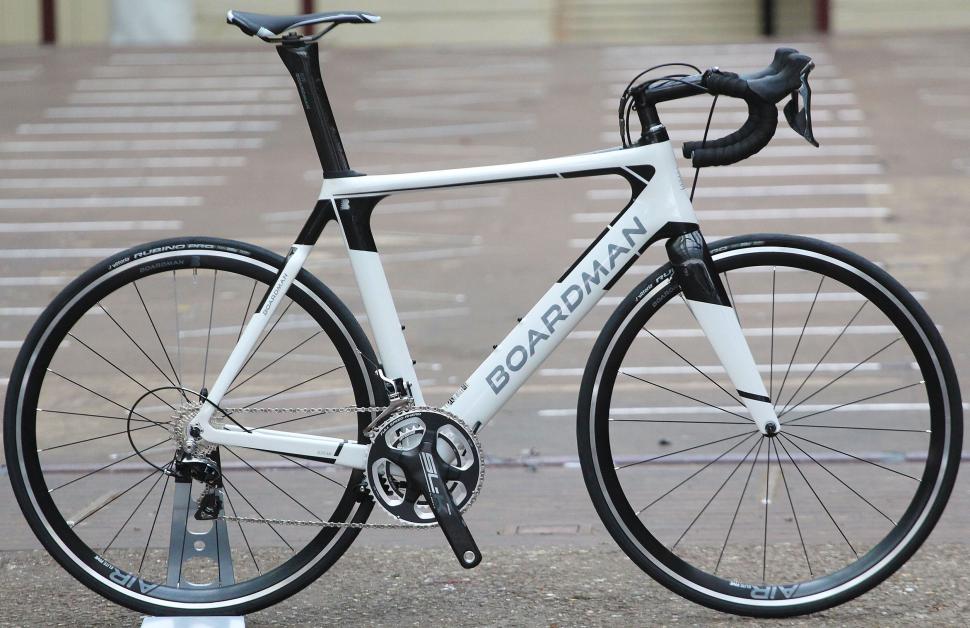

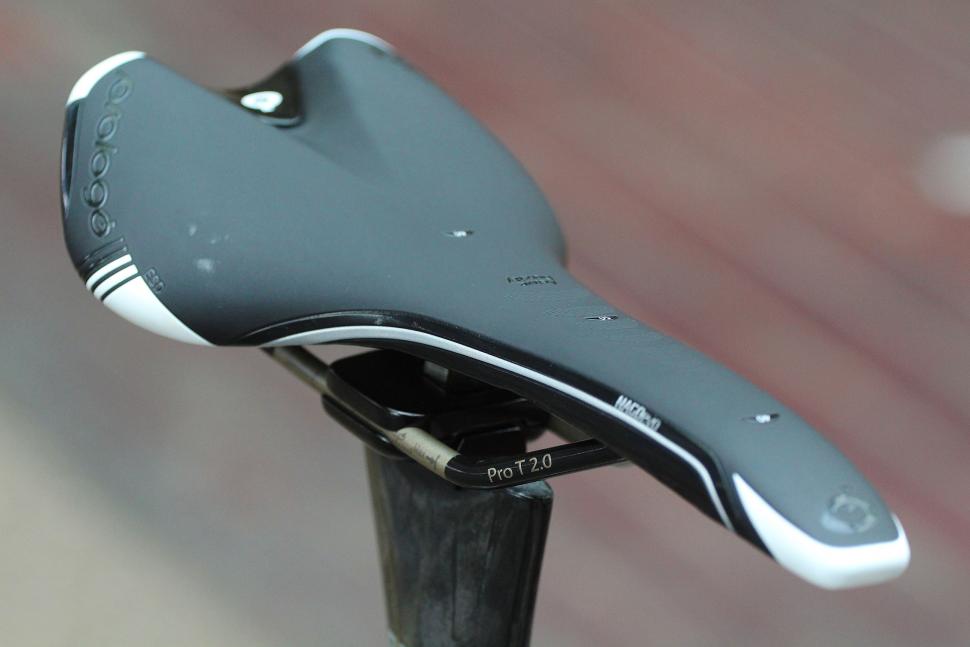

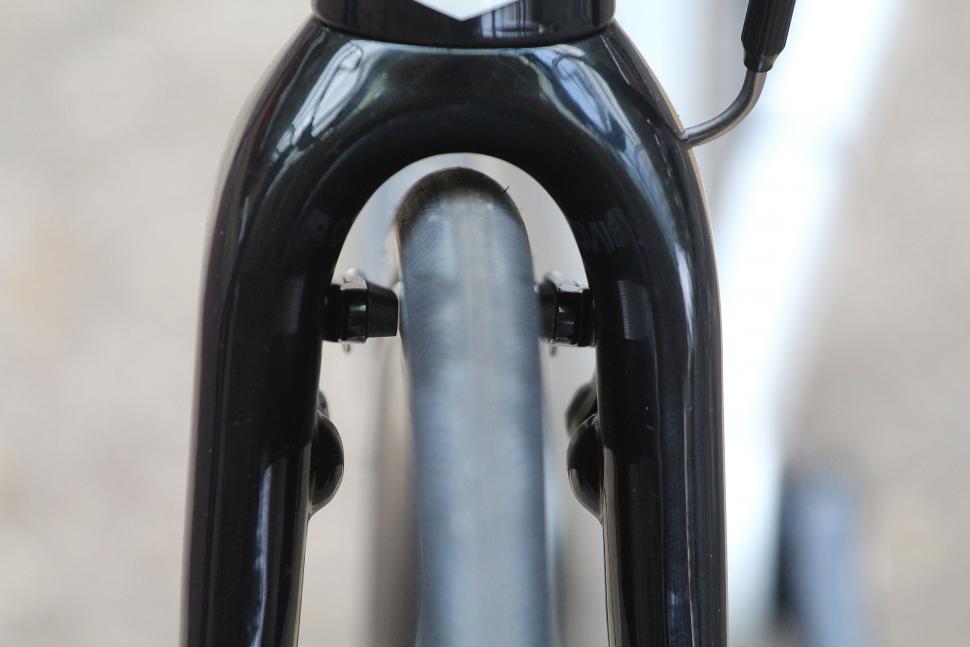

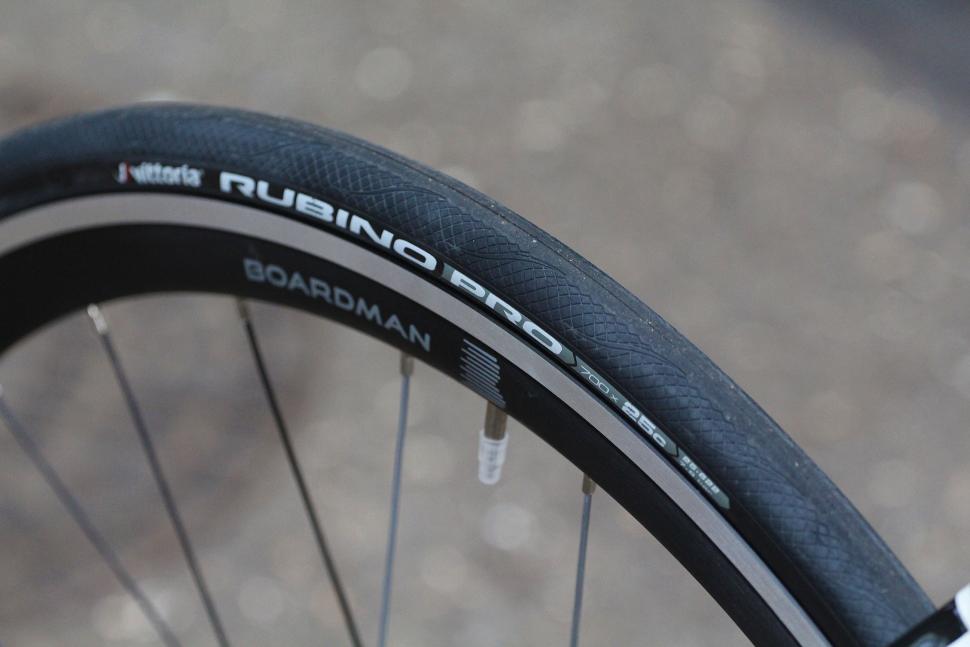


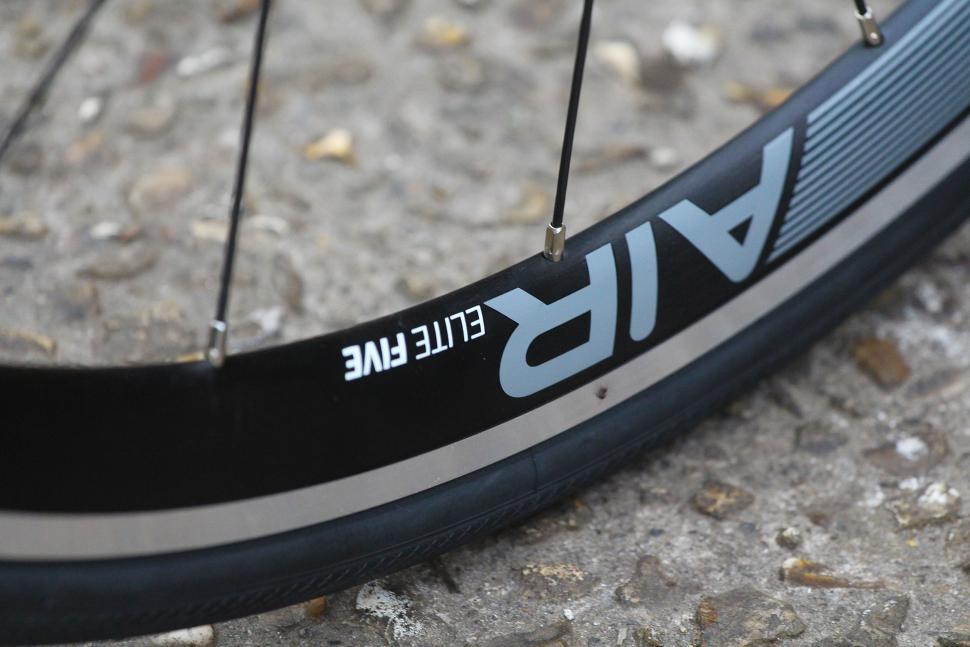
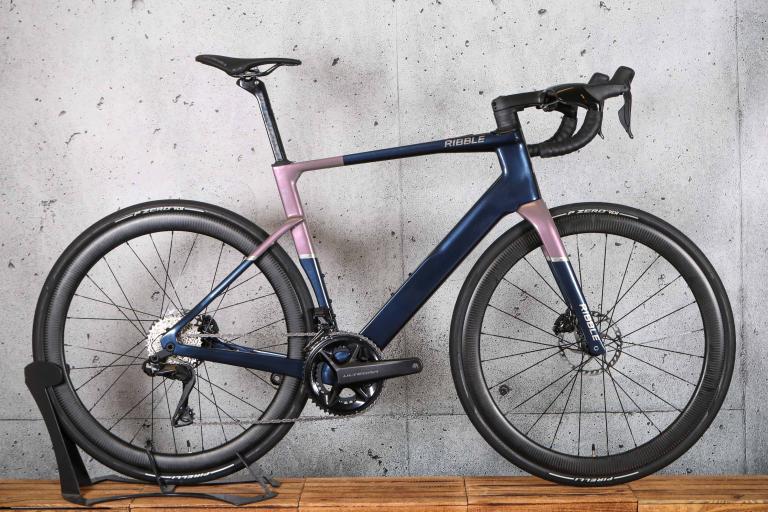
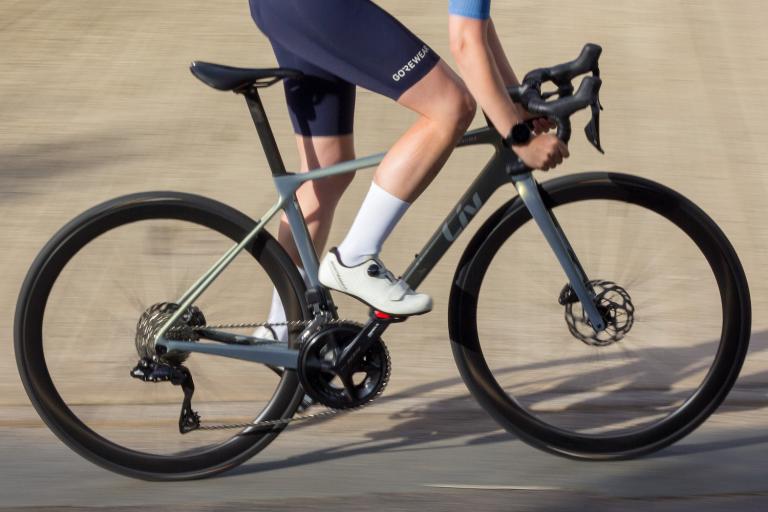
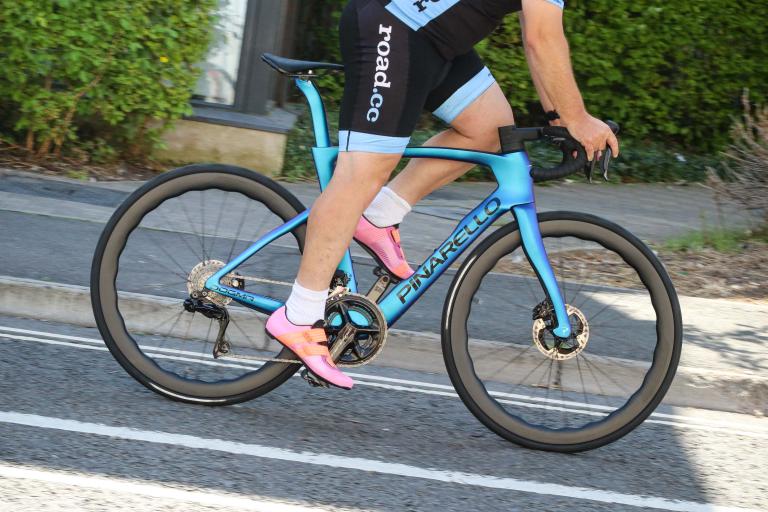
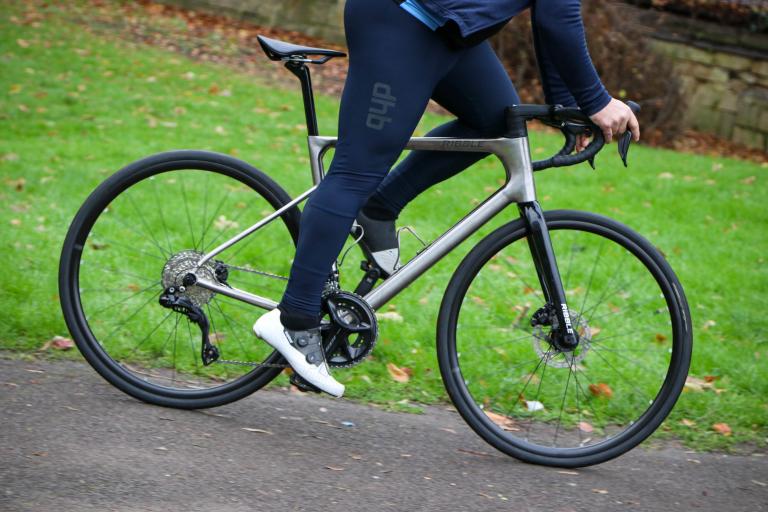
Add new comment
13 comments
If it were me getting this bike, I would have fitted a new direct mount DA brake in the rear + a mono pivot DA brake at the front in a new ENVE fork (my personal favorite fork out there). Would have kept the carbon chainset but swap the cassette for DA one. I would stick with FSA chain because FSA chainset I guess works better with FSA chain. Would also have swapped those wheels for a pair of ENVE SES 7.8 (also personal favorite wheels out there). But this would cost me an extra 4000 pounds so I could actually get a complete bike at the price.
Can someone enlighten me if Shimano brakes can replace the TRP rear brakes on the Air TT NOT Air??
A bike suspiciously like the one pictured overtook my cross bike at about 1 minute 43 in this video, but was overtaken itself a minute later by a old Caad 9! (videoing) https://youtu.be/pgr1MKpbQQk
yes yes.
The design brief for the new boardman road range seems to be "Go boring. Really boring." Cf the Boardman MTB Pro FS, which looks OK if you ignore the really dull logo.
Can a bike really be aerodynamic if you have to raise the handlebars as high as the picture at the top would suggest has been done with what must be a 2.5/3.0cm(?) with a stack of spacers? I guess it can be more aero than your other bikes (which presumably are also made for a gigantic person). I am always surprised people think there's much value in paying extra for an aero frame only to stick their chest into the wind with a high handlebar position.
30mm of spacers. i ran it with 15mm above and 15mm below most of the time I was testing it. Lowered it more for racing.
Bottom line? You have to compare like for like. I try to adjust my position on a road bike so it's more or less the same, whatever I'm riding, because I know what's comfortable and sustainable for me. Given that's the case, my body position is more of a constant than a variable. I could (and arguably should) probably spend some time doing core flexibility stuff so I can sustain a lower position; after all, three quarters of the drag is you, not the bike.
That's kind of the point, really, no? Was this bike faster than other bikes I've ridden recently? Yes, it was.
I used to like the look of Boardman bikes. What happened to those lovely looks?!
Well said macbob! I agree with you 100%.
Even though I'm a steel machine lover, I'm intrigued by this aero machine...
I read a lot of reviews of similar machines, where comfort is apluaded...even though I am aware that it's a relative assessment, how much more uncomfortable it is compared to "comfort machines" (e.g. C'dale Synapse). I.e., for common readers who didn't have the luxury of testing these aero machines, how much stiffer/uncomfortable are they?
Much appreciated!
O
They're not as forgiving and it's noticeable over rougher surfaces. But the trend towards bigger tyres has narrowed the gap somewhat; a lot of the cushioning that happens between the road and the rider happens at that first stage. you can out 28mm tyres on a super-stiff frame (if they'll fit) and it can transform the ride.
bottom line, this isn't an uncomfortable bike. I did 100km+ rides on it on varied road surfaces with no issues
Thought-provoking review of an interesting bike. Thank you.
One of the thoughts it provolked in me was that if you describe the bike as "£2799 in a Shimano Dura Ace build" and carry-on "Shimano Dura Ace surely needs no introduction" and conclude your review of "a full carbon Dura Ace aero bike" that "there are not many aero bikes that offer Dura-Ace below £3000" then its worth calling-out the manufacturer on the fact that this isn't one of them.
FSA chainset, TRP brakes and a 105 cassette cannot realistically be called a "Dura Ace build".
We all understand why manufacturers make cheaper substitutions in the spec of their bikes, but there has been a trend recently (one I think it is incumbent on the bike press to encourage) to ensure that when you order the Ultegra/ Dura Ace/Chorus/Red) build of a bike you get the whole groupset. This trend has been forced (sadly, not by the press) but by the direct-sell merchants like Canyon & Rose. When they call a bike the Dura Ace build that is exactly what you get - every time; you don't need to check the fine print of the spec. The only way retail bike companies are going to compete in the long run is not by trying to undercut the direct-sell merchants with cheap substitutions but by producing bikes as good for around the same price.
Don't forget the FSA chain...
Brakes I can accept, everything else should be DuraAce
Direct sell is always going to be cheaper, that's a simple matter of having less people to pay. it's not without its own issues, as Canyon's recent woes have highlighted.
The only substitution I've really got any beef with on this bike is the rear brake, which I've pointed out. A Dura Ace one would improve matters, I'm sure.
The carbon FSA chainset is excellent, the cassette and chain substitutions neither here nor there. They make the bike a bit cheaper and they don't affect performance, at all.
Personally I'd rather have the 105 cassette and get the saving: it's more durable, performance is entirely comparable, it only weighs about 80g more and it's a quarter of the price. But your mileage may vary there.
A set off "clip on" bars timetrial machine